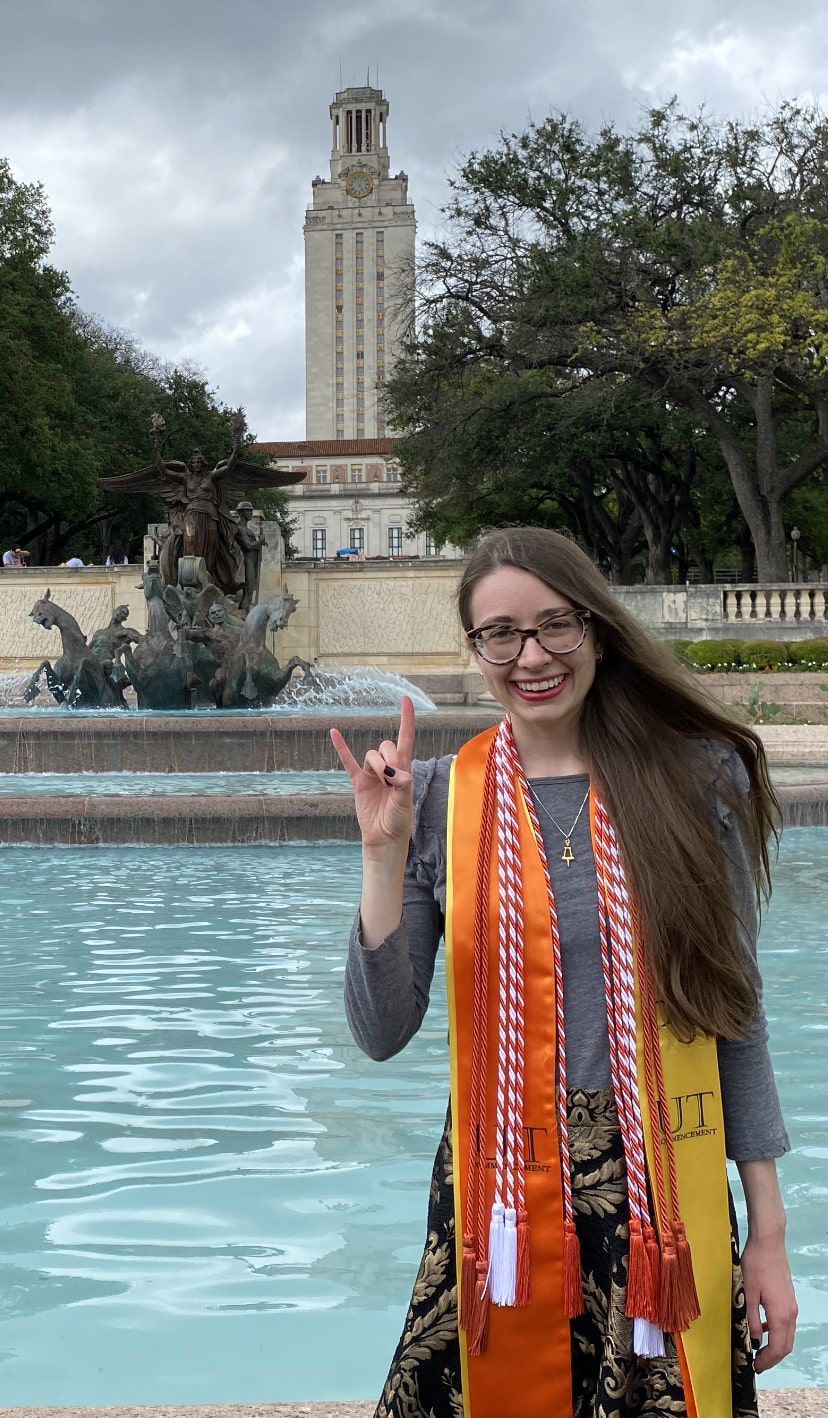Katharine Fisher is this year's Outstanding Scholar-Leader for the Cockrell School of Engineering — an award that recognizes one graduating student annually for hard work and leadership inside and outside the classroom. However, things may have been very different had she not decided to check out an engineering outreach program on a whim in high school.
The California-born, Texas-raised Fisher was always interested in building things and solving hard problems as a kid, a staple of the engineer's brain. But her early schooling did little to encourage this mindset, and slowly her interest in engineering and science drifted away.

That is, until she attended a workshop put on by the nonprofit Project Lead The Way in high school in Melissa, Texas, a small town about 40 miles north of Dallas. Fisher wasn't all that interested in the science program itself, but she knew some people who were going, so she tagged along.
She never saw herself as a scientist or an engineer — due to lack of exposure to the fields and how they were depicted in pop culture. But once she got some hands-on experience in the outreach program, it all changed.
"I ended up seeing that there was a lot of creativity in engineering that I didn't know existed," she said. "Seeing the excitement other people had for the field made me think of it as something I wanted to do, which led directly to me deciding to study engineering and make it a career."
The program lit a flame for Fisher. And after delving further into engineering, she transferred to the Texas Academy of Math and Science in Denton, Texas, to finish out high school.
Now, a few years later, Fisher is graduating from The University of Texas at Austin, with dual degrees in computational engineering and mathematics from the Department of Aerospace Engineering and Engineering Mechanics and the Department of Mathematics, respectively. She finished with a 4.0 GPA, no easy feat in one of the top engineering schools in the nation.
She has studied abroad in France and Spain as part of the Engineering Dynamics Maymester program. Fisher won the 2020 Graham F. Carey Undergraduate Scholarship in Computational Science from the Oden Institute and she is also a member of the Tau Beta Pi Engineering Honor Society.
Her research generally focuses on mathematics-based computational models, which can be applied to any number of fields. Her two main focal points are analyzing models themselves to find and reduce error rates, and studying space debris.
Up next, Fisher is heading to graduate school, with an ultimate goal of becoming a professor of computational engineering. Outreach to the next generation of prospective engineers is a major part of her career goals.
"I definitely want to make that a part of every stage of my career; I want to show more people like me — who saw engineering as a very distant career path — that it is viable," Fisher said
From the moment she stepped foot on campus, Fisher has been dedicated to spreading the word about engineering. She is involved with Women in Aerospace for Leadership and Development, an 11-year-old student organization that aims to attract and retain more women in engineering and help them develop leadership skills. The organization also organizes outreach events for middle and elementary school students to raise interest in STEM. Fisher also serves as an ambassador for prospective computational engineering students, a duty she has performed remotely during the pandemic, adding an extra layer of difficulty.
She enjoys going into schools to recruit students from a variety of backgrounds into engineering. Without that experience in high school, Fisher says, she probably would have gone a very different direction and become some type of literature major.
Fisher is moving to Boston this summer in preparation to attend MIT in the fall, with a few friends in tow. She looks forward to getting to know the new city and keep up with her hobbies of reading and crocheting, which it turns out, is a lot like engineering.
"It's interesting how similar a knitting or crochet pattern is to a computer program," Fisher said. "I didn't realize how algorithmic the process was until I started studying engineering."







